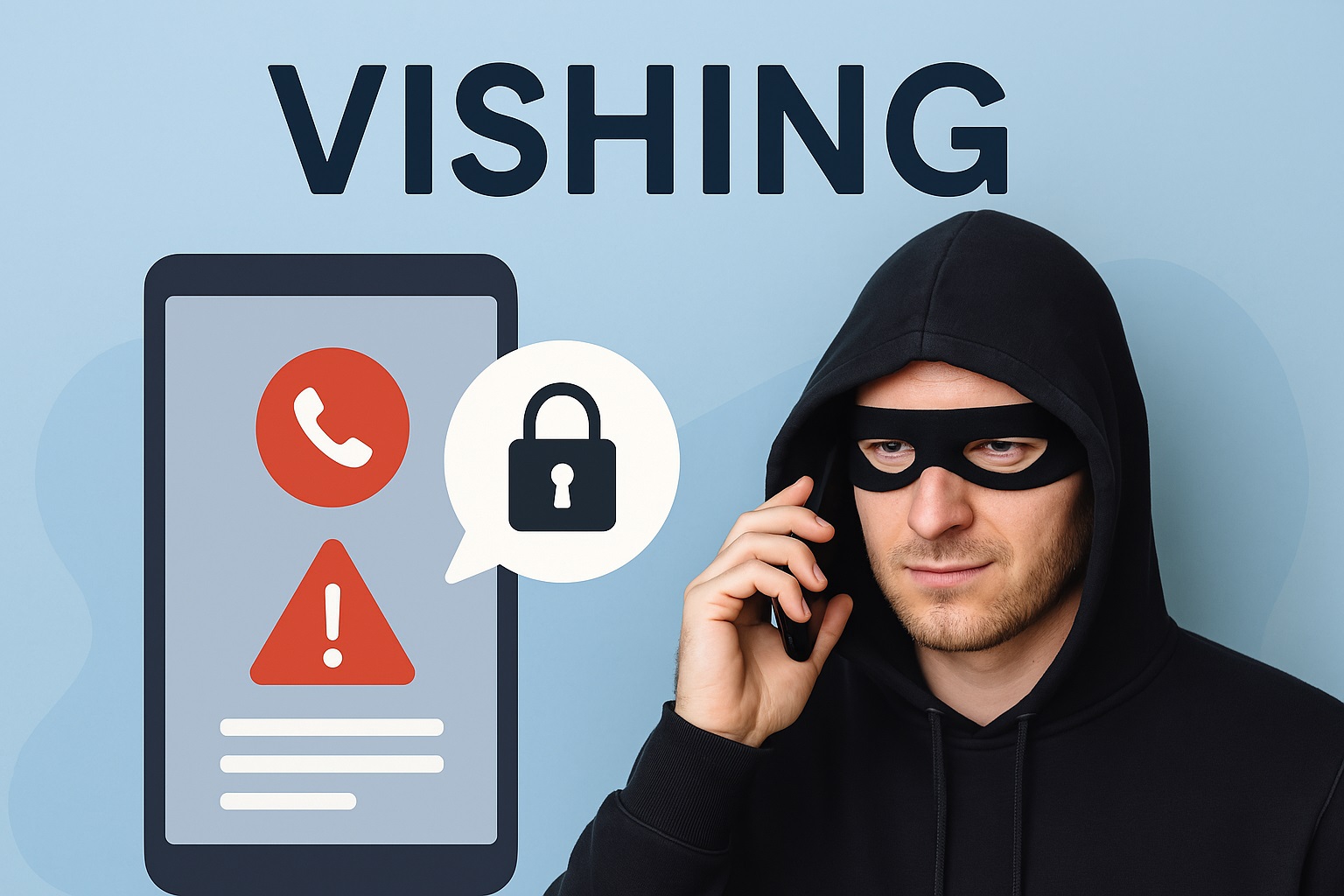What is VISHING?

Vishing, short for "voice phishing," is a type of social engineering scam that involves phone calls used to deceive people into revealing sensitive information. Scammers often impersonate trusted organizations like banks, government bodies, or tech support services to trick individuals into sharing login credentials, credit card details, or personal identification numbers.
Unlike email phishing, vishing relies on the human tendency to trust a voice on the other end of the line. The increasing use of spoofed numbers and publicly available data makes these scams highly believable and effective.
How Vishing Scams Work
Vishing scams succeed because they manipulate emotions and exploit trust. Attackers may sound authoritative, urgent, or even friendly, all to gain your confidence quickly. Calls may warn of suspicious activity, unpaid taxes, or a family emergency. Spoofed caller IDs might display the name of a legitimate business or institution to lower your guard. Imagine receiving a call from your Bank saying your account was compromised and they need you to confirm your login details. In the heat of the moment, it can be easy to comply without thinking.
Recognizing the Red Flags
Scammers often use pressure tactics to force quick decisions. They may claim you’re at risk of arrest, that your funds are in danger, or that your computer is infected. Be wary if the caller asks you to stay on the line while performing tasks, requests remote access to your device, or insists you not speak with anyone else. Another warning sign is when a caller asks for sensitive data over the phone, especially if the call was unexpected. Legitimate institutions rarely ask for passwords, one-time codes, or full account numbers over the phone.
The 4Ps of Spotting Vishing Attempts
◾ Pretend – The caller pretends to be someone you trust, like a bank representative, tech support agent, or government official. ◾ Problem – They create a problem or urgent situation (e.g., "your account has been compromised"). ◾ Pressure – You are pressured to act fast, often under threat of consequences. ◾ Payment – You’re asked to make a payment, transfer funds, or share confidential information. Remembering the 4Ps can help you stay alert and question the legitimacy of the call.
Staying Protected
◾ To protect yourself from vishing, be cautious about sharing personal information, especially if you didn’t initiate the call. If something feels suspicious, hang up and call back using an official number from the organization’s website. ◾ Avoid reacting out of fear. Take time to verify any claim. Use call-blocking tools or apps that help identify known scam numbers. Keep your software and phone updated and consider enabling multi-factor authentication for added account security. ◾ Organizations should also educate employees on how to handle unsolicited calls and encourage a culture of reporting. Awareness training, restricted access to sensitive data, and verification protocols are key components of organizational defense.
If You Suspect a Vishing Attempt
If you receive a suspicious call, hang up immediately. Do not provide any information. Note the caller ID if possible and report the incident to your IT or security team, your bank, or a national cybercrime authority. If you believe you’ve disclosed any sensitive data, change your passwords, enable MFA, and monitor your accounts for unusual activity.
Real-World Example
1.Tech Support Impersonation
A caller says they're from “Microsoft Security” and claim your computer has been hacked. They ask you to install remote access software so they can “fix” the issue—giving them full control of your device instead.
2.Bank Fraud Alert
You receive a call from someone claiming to be from your bank’s fraud department. They say there's a suspicious charge and need to “verify” your account by asking for your full card number and one-time security code.
3.Fake Survey or Contest
You’re told you’ve won a gift card or cash prize for participating in a survey. To claim it, you must provide personal information or pay a small “processing fee” over the phone.
4.Delivery Scam
A fake courier company calls saying they have a package you need to release—but first, they require a credit card payment or verification of your identity with your social security number.
5.Legal Threat Scam
The caller says they’re from law enforcement or a government agency and that there's a warrant out for your arrest unless you pay a fine immediately. They may demand payment in prepaid gift cards or wire transfers.
6.Healthcare or Insurance Scam
Someone posing as your insurance provider or a hospital billing department call, claiming there are issues with your health coverage. They request your policy number or payment details to “resolve” the issue.
Conclusion
Vishing is a serious and growing threat, but awareness and caution are your best defenses. Whether you’re at home or at work, stay vigilant. When in doubt, hang up and verify.
Remember: If it feels wrong, trust your instincts and disconnect. It’s always better to be safe than sorry.